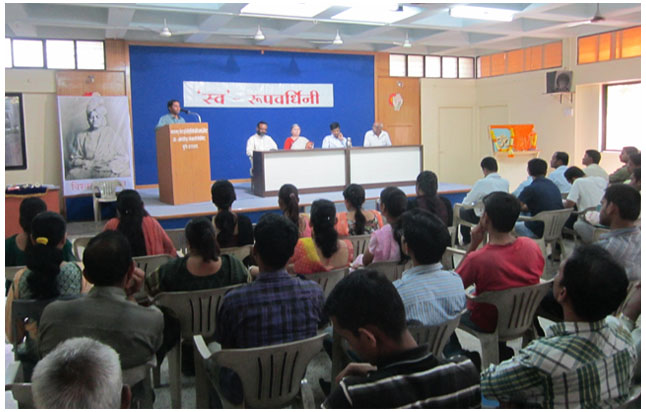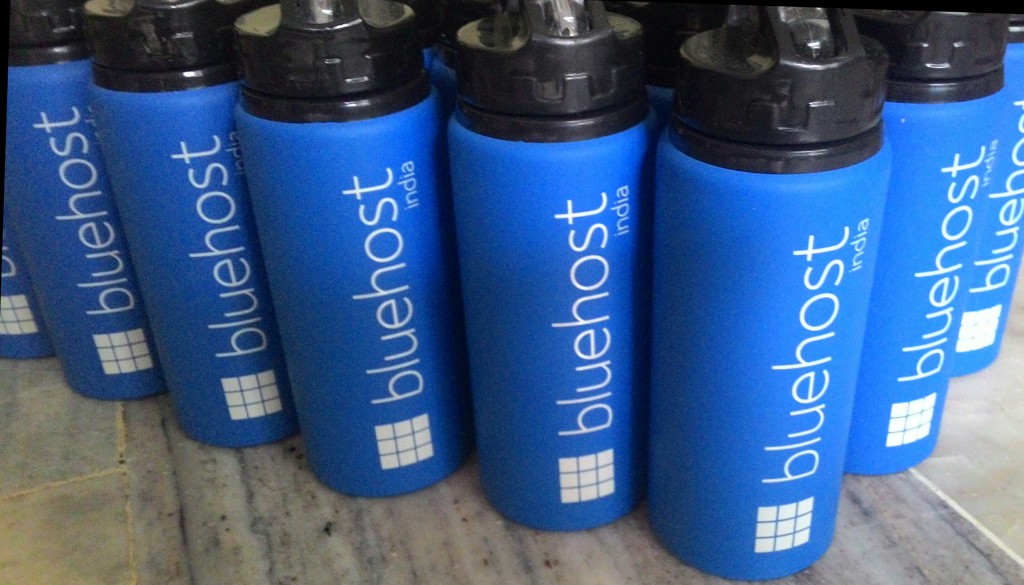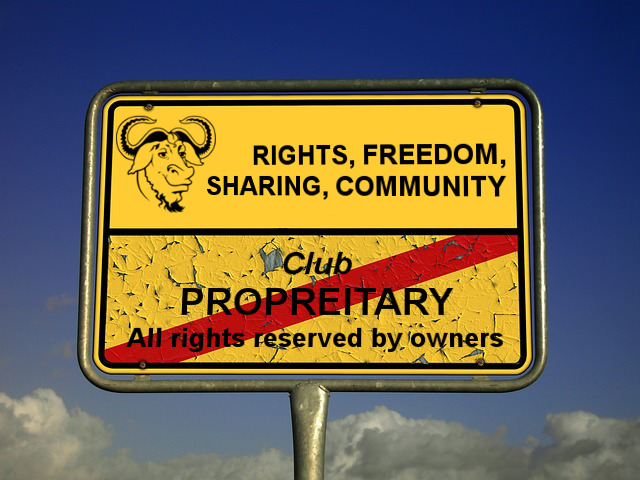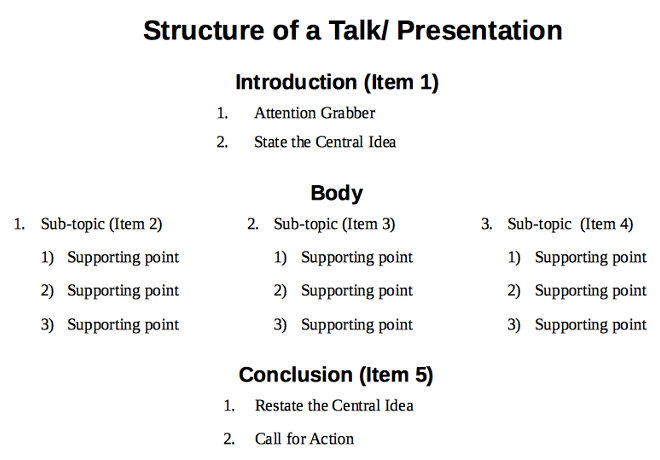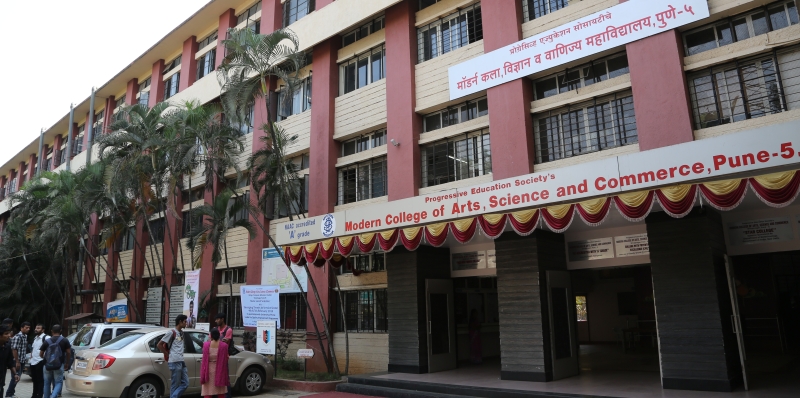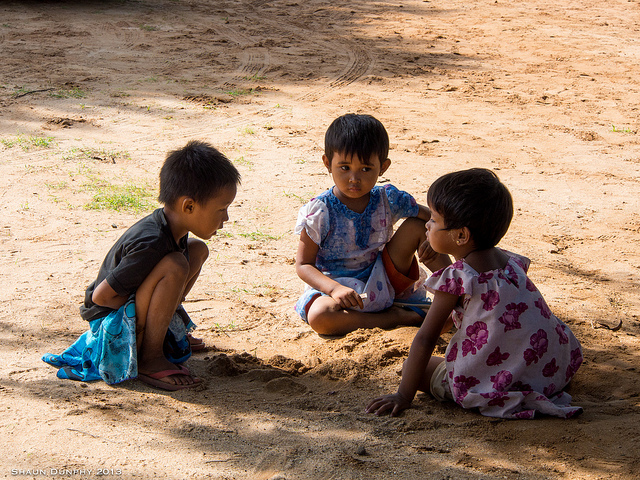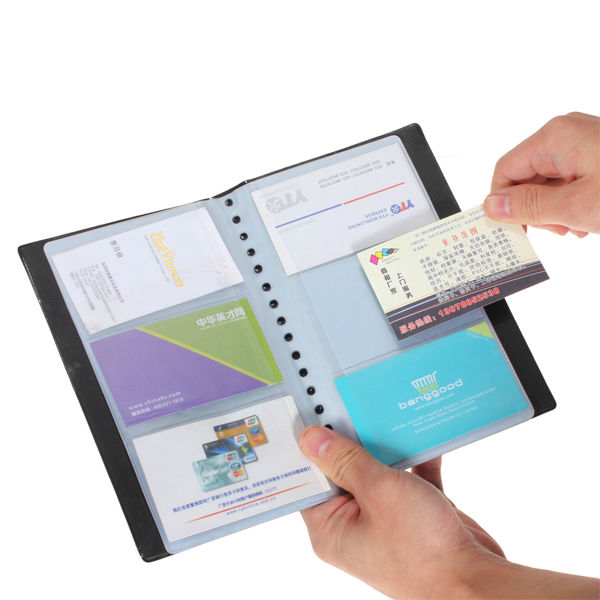Category: Philosophy
WordCamp Pune for the community!
Our sponsors, notably JetPack, WP All Import, ZNetLive, SaniSoft and BlogBrandz have asked us to donate all their free tickets to someone who deserved and could use it better. Others have given away at least some of their tickets and some haven’t claimed them yet. These would also go in the charity pool.
In addition, speakers like Mahangu, Andy, Jeremy and Jitesh have given away their tickets, choosing to buy one instead. In total, we have about 25 tickets. We decided to add another 25 to it and give away 50 free tickets to youth who come from economically disadvantaged families.
We got in touch with ‘Swa’–Roop Wardhinee which is one of the leading non-governmental, non-profit organisations working with underprivileged college students, children and women and help them with their education, self-help and skills and vocation based training.
We’re glad to announce that thanks to our sponsors for funding us well and everyone who gave away their tickets so that students from ‘Swa’–Roop Wardhini can get introduced to the world of Blogging and Open Source in general and WordPress, specifically. It could have been just a little difficult for them to spend the ticket cost of WordCamp Pune 2015!
The next time, we’ll make this 10% share larger than it is. Promise!
Drinking Responsibly, the most precious drink on earth
At an event like this, hundreds of people drink water from disposable plastic bottles or plastic/ paper tumblers raising the environmental cost of such a simple social event.
Which is why, at WordCamp Pune, we have tried to do away with it without losing any practical convenience.
The culture of reuse
We have procured packaged drinking water in large reusable containers, that’ll be placed all over the venue along with reusable dispensers.
The containers go back to the bottling plant where they are sterilised and water is refilled for distribution. This means we do away with small prepackaged water bottles that could end up anywhere since we don’t have enough control on that.
If each of us has a bottle that they can refill whenever they want to, we do away with the plastic/ paper tumblers.
Courtesy of our WordCamp Superb Bluehost, we’ll each have a re-usable metal sipper/bottle that’s about 500ml in capacity. Metallic with plastic cap and straw, we feel these are quite good looking and handy. Now, we’ll be able to reuse almost everything and produce almost zero garbage from the act of drinking water.
It’s also swag!
Here, have a look. And, thanks Bluehost!
WordCamp Pune Impact: Two organisations fully embrace GPL, one trademark violation averted
Themechilly is now 100% GPL!
When ZNetLive, one of the leading hosting providers in India approached to sponsor us, we were more than happy to have them on board. However, we later realised that ThemeChilly, a sister concern of ZNetLive, used a restrictive license incompatible with GPL.
Instead of recanting their sponsorship, the great folks at ZNetLive engaged in a fruitful discussion with Aditya Kane (WordCamp Deputy and mentor to WordCamp Pune) and myself and switched to 100% GPL Licensing!
This is what Dakshesh Verma, Marketing head –ZNetTechnologies (the parent company of ZNetLive and ThemeChilly has to say about it:
Initially at ThemeChilly, we had a relatively restrictive usage license for our themes and plugins, as we were slightly apprehensive about the possible ‘piracy’ GPL might’ve entailed on our WordPress products; a misconception we had, due to, frankly, our misunderstanding, or rather limited understanding, of GPL and its implications.
Having come to fully grasp how perfectly GPL captures, and passes on the essence and liberty of WordPress to everyone – the developers and users alike, it made good sense for us to have all our products GPL’d.
Being a part of WordPress community, we want our end users to have and benefit from the same level of freedom that WordPress as a platform has provided to us. 🙂
Slidervilla updates its licensing to become 100% GPL!
SliderVilla, another sponsor of ours was GPL in principle since the licensing said that their code was 100% GPL. However, their terms of purchase conflicted with the license and had very restrictive terms. Alexander Gounder (a WordCamp Deputee) pointed this out to us, since we just happened to see the license and not the other terms.
When contacted, SliderVilla agreed and updated their terms within 10 minutes! Sanjeev Mishra the CEO of SliderVilla says
GPL helps in building a strong community around a product or software, and WordPress itself is one of the best examples. It compels us to work together and build upon the original work and put best foot forward.
SliderVilla started because its founders got so much help from the WordPress community in their early days. And releasing our products under GPL license is one way to say thanks and giving it back to the same community.
WordPress in the TLD
One of our sponsors who wouldn’t like to be named (and we respect that!) had purchased a TLD with the word WordPress in it. Unaware that it violated the WordPress trademark, they immediately took it down when informed about the copyright and trademark infringement. Another day and another disaster averted.
High five, community! Make sure you are there at WordCamp Pune to meet them and other champions of open source! Get your ticket now!
Transparency Report 5: Speaker Selection Process
In a series of posts, we lay bare our processes and list the tools that we use. For the sake of absolute transparency and so that other events may pick up a few, since we’ve already tried and tested them. We’ll be revealing the organiser selection, speaker selection and volunteer selection criteria and processes.
If you’ve read the previous transparency reports, some of this would be very obvious. Still, there were only two factors that we considered when we decided upon a speaker:
1. Great facilitators, not just good speakers
It is easier to speak on a stage to an audience than interact with the audience and facilitate the transfer of knowledge from you (or someone else) to the audience and use the feedback and cues to mould your session to what works and not a pre-decided and rehearsed speech.
We did not select a lot of great speakers because we found the interaction lacking. We selected some whose language or presentation skills or even speech delivery wasn’t that great but they were very interactive and hence were way more interesting!
2. Advanced users, not necessarily experts
There are two choices that we faced sometimes when selecting a speaker. Should we select an expert who’s not a good speaker or should we select a good speaker who’s probably not an expert but has decent enough knowledge.
WordCamp after WordCamp we’ve learnt that there are enough experts in the audience who are more than ready to participate and help both the speaker and the rest of the audience with their knowledge.
So, we decided to have great speakers on stage instead of experts. Luckily, almost all of our speakers are also experts on the topics they are dealing with. So it worked out automatically most of the times.
There were other secondary factors that were also considered but the first two took absolute precedence.
3. Open to formats other than lectures/ talks
Some topics can only be dealt with in a lecture or talk while others can be taken in a workshop, QnA or any such interactive format. Speakers who were excited about such changes were given priority over speakers who would rather give a speech!
4. Compulsory demos
We didn’t approve a single speaker who we haven’t seen or heard speaking before. We asked for previous videos from those who we hadn’t heard in a previous conference.
We asked those who didn’t have such videos to record videos for us to consider. Some of them even held demo sessions in their workplace that they recorded and sent across. Some others came down in person in our meetups to deliver their sessions.
In the end, we based our decisions on our own experience and the audience’s reaction.
5. No fame seekers and VIPs
In our communication with speakers, sooner or later it became very clear that some speakers wanted special VIP treatment or wanted to speak to become famous.
A special quality of such applicants is extensive name dropping and excessive communication about who they are and where have they spoken rather than what they are going to speak about. As soon as we realised this, we put them on the dicey list. They were also interested in discussing the publicity options more than the actual content of their talks.
Which is why probably, none of them actually had any well thought of and interesting topics or well structured, well planned content of good quality. It doesn’t mean that you will not find an exception of someone with great content but lousy intentions. If we had met such an applicant, we might have accepted them due to our first criteria. You can make your own choice.
6. Technically sound session structure
We included two questions in our application form. One was about the Magic Number 7 and other was about Chunking. Both the concepts deal with our working memories where information is stored in the run time before turning it over to short term or long term memory for storage.
Magic Number 7
The theory of magic number seven says that our working memories can only hold seven instances or chunks of information at a time. It varies by +/- 2 in individuals. So the maximum information everyone can gather in their working memory is about five chunks! Anything more than that would be useless as it will overflow and be lost.
So, if you provide 9 pieces of information, 2 will be lost for some and 4 for some more. That’s why, a 10 digit phone number can’t be remembered together: 9224198765.
Chunking
However, by bundling multiple pieces of information into chunks, one could place more things in the working memory. For eg, the number above can be presented as 922 419 8765. Now there are just 3 chunks instead of 10 and it is easier to process! That’s why numbers are written in chunks.
We were looking for speakers who understood this, so as to structure their presentations into 3-5 chunks/ points and at the most 3-5 sub-points. The topic’s introduction and conclusion themselves form 2 chunks!
Transparency Report 4: Structuring the WordCamp
In a series of posts, we lay bare our processes and list the tools that we use. For the sake of absolute transparency and so that other events may pick up a few, since we’ve already tried and tested them. We’ll be revealing the organiser selection, speaker selection and volunteer selection criteria and processes.
Using our guiding principles, we started structuring the WordCamp. We used observations from other tech and startup conferences since they were the most relevant, apart from WordCamps in other cities in India and elsewhere.
Just one day
One day conferences had better attendance because of the cost of staying and the fatigue.
Parallel tracks
Not all attendees were in interested in all the sessions which led to section of disinterested audience who had nothing else to do. It also led to the speakers working with an unnecessary audience load and less interaction. So, parallel sessions were a great idea.
More than lectures
Not all attendees are interested in lectures/ talks. More people learn by doing or experiencing rather than just seeing and listening. We had to accomodate interactive formats like Workshops, Discussions, Debates, QnA, etc.
Local language
We wanted to be more inclusive and hence decided to get rid of the language barrier by inviting sessions in Hindi and Marathi. We have had such a great response that you can just attend the Hindi, Marathi or multilingual sessions the whole day!
Session Overflow
Sessions almost always end with a discussion. Some discussions are interesting and everyone wants to explore it further. But, we run out of time. So we decided to have some extra time that can be had in a separate room that can be used to continue the discussion that overflows from the session. What else to call it?
Unconference
We are not the best judge of who’s a good speaker. Sometimes we can’t accomodate some speakers. Sometimes people miss the call for speakers for various reasons. Sometimes people feel like taking a session at the last moment, maybe because another session or event inspired them to. So, we decided to have a BarCamp style unconference space of two slots that anyone can take up on the day of the WordCamp to conduct a session!
The WordPress Lounge
Not all attendees are interested in any kind of formal sessions. We had to find something for them to do. People should attend WordCamp Pune for any reason they have, not ones that we enforce. We decided to have a WordPress Lounge which would include the Happiness Bar or Support Desk or a similar concept. Basically you can just walk into the WordPress Lounge and meet some speakers, experts and other WordPress users and discuss anything under the roof. Someone will always moderate the Lounge so that the discussions are always fruitful!
Networking
It is possibly the most important reason that everyone comes to a conference or an event. WordCamps are no exceptions. So, we decided to have longer breaks and some other activities (that we will announce soon) that will make sure everyone interacts with everyone else even if they are extremely shy and won’t talk to strangers! 😉
Fun & Frolick
And while we are at a conference, why not have fun! We decided to include some activities and contests purely for fun! Some of these we haven’t talked about before and some we will spring as a surprise! Some of the activities include the Buddy Program, a Photography contest and a Treasure/ Scavenger hunt!
Swag
Everyone loves wearing T-shirts, especially from events they’ve been to. A WordCamp Pune t-shirt won’t just popularise WordCamp Pune but all WordCamps and WordPress itself. A t-shirt was must!
The best swag we saw wasn’t something that commemorated an event. That can be done with a piece of decorative wood/metal/paper/plastic/ceramic/cloth with text engraved on it or maybe a certificate! The best swag was uitilitarian.
We have often felt extremely thirsty in the middle of a session, especially looking at the little water bottles the speakers have and some other smart people brought with them. How we wish we remembered to carry a small bottle. It’s very inconvenient to keep going to the water dispenser for a sip of water, all the time. Added to the fact that we didn’t want to use plastic or paper cups for serving water, we decided to provide a sipper that attendees can fill with water and carry wherever they need.
There’s some other stuff that some sponsors and well-wishers are itching to give you but we’ll let that be a surprise!
The total cost & Convenience
We didn’t base our calculations on simply the money the organising group spend in the WordCamp. We also considered the additional costs that our attendees had to bear. We have even finalised a deal with autowale.in for a ₹100 discount on all rides that have the venue as source or destination. All you have to do is use their app and book your ride. Autos are as it is cheaper than cabs and Pune in September is great for an auto ride!
We’re even speaking to hotel booking services for a one stop, convenient service for you to book your stay in Pune! Look for an announcement soon.
We also considered the environmental cost of the event and made sure we reduced what we wasted, reused and recycled what we used.
Transparency Report 3: Selecting a Date and Venue
In a series of posts, we lay bare our processes and list the tools that we use. For the sake of absolute transparency and so that other events may pick up a few, since we’ve already tried and tested them. We’ll be revealing the organiser selection, speaker selection and volunteer selection criteria and processes.
Just for One Day
We first decided that we’ll only have a day long WordCamp. There are two reasons we did this:
Cost
The cost of attending a WordCamp doesn’t only involve the price of the ticket. If the WordCamp would’ve been for two days, one would have to spend money on accomodation. A one day WordCamp means that a lot of people can come to Pune in the morning and leave for their homes in other cities, at the end of the day.
This single change drops the cost of attending a WordCamp from a possible 3-4K to just 1-2K or even lesser. This can encourage a lot of people from nearby, especially beginners and students, to be a part of the community without worrying about the expenses.
Audience Fatigue
This is the attendance pattern we’ve seen in almost every 2 day conference:
| Day One | 1st half | 200 |
| Day One | 2nd half | 100-150 |
| Day Two | 1st half | 100-150 |
| Day Two | 2nd half | 50-100 |
We could’ve countered this drop in attendance by almost 50-75% using various techniques and measures. However, this is in a way our first WordCamp. We thought we’d rather make sure that we give a full day of rich interactive sessions this year, see how it goes and maybe, we can have a 2 day WordCamp in the future.
The Date
Our date had to allow the maximum number of participants(5). So, we looked for a date that isn’t around not just on any public holiday or festivals that people already use for something else, like vacations, family or community celebrations or public festivals.
Our date had to experience nice weather so that people from all over the world can worry about WordPress more and their physical comfort, less. Pune’s scorching summer was excluded so was it’s biting winter. Pune doesn’t experience major rainfall, being a plateau. However, rains are a little inconveniencing.
So, we came down to just one date September 6th after avoiding every major festival and considering that September in Pune is just after rains, just before winter, not exactly spring but pleasant nevertheless.
The Venue
We needed parallel sessions, so we needed a place that had multiple assembly halls and conference rooms, etc. We also needed a place for 500 people to sit at the same time! Our choice boiled down to a couple of venues.
What clinched the deal was the enthusiasm and proactive interest the faculty from Modern College of Arts, Science and Commerce showed in hosting the WordCamp. The Department of Computer Science was extremely co-operative and helpful with the resources they had and very nominal as far as the costs were concerned.
Second, our preference was for a place in the center of the city (Deccan/ Shivajinagar). Modern College, sandwiched between FC Road and JM Road was the perfect point. It is close and well connected to almost every entry and exit point of Pune, including the bus stations, railway station and the airport. The area also has a lot of budget friendly accomodation which added some weight to our choice.
Transparency Report 2: The Accessibility Principle
In a series of posts, we lay bare our processes and list the tools that we use. For the sake of absolute transparency and so that other events may pick up a few, since we’ve already tried and tested them. We’ll be revealing the organiser selection, speaker selection and volunteer selection criteria and processes.
In the first few discussions, when we started thinking of a WordCamp Pune, we agreed that the most meaningful interactions happen in small groups and more intimate activities than lecture talks or conference like settings. Taking inspiration from BarCamps, we decided to have about four parallel tracks that let 200 attendees split into four groups of 50 each.
Then three things happened:
- More people started coming to our meetups from outside Pune city. We started having people over from the whole division. The meetup group’ membership swelled to almost 300 (It is more than 600 now). We realised we had to increase the number of participants.
- The discussions at our meetups became livelier and friendlier whenever we switched to Hindi or Marathi from English. We realised we had to become more inclusive in terms of language and regions. We also had to make it more accessible to everyone.
- The more technical and/ or advanced topics attracted about 10 – 20 odd people per meetup. The beginner/ or non technical topics attracted a much larger audience of upto 36 in some meetups. Of the people interested in WordPress, majority were beginners.
Our keywords at this stage were:
- meaningful interactions
- small groups
- intimate activities
- parallel tracks
- number of participants
Everything we do should encourage more meaningful interactions between the participants. For that to happen, activites at WordCamp Pune must be done in small groups. Instead of lectures and talks that only involve one way or at the most two way interactions, we should have activities that involve more discussions and many to many interactions.Intimate activities like Workshops, QnAs, Panel Discussions, etc had to find more space in WordCamp Pune. Also, since we were now expecting a large number of people, we needed to have multiple parallel tracks to divide them into smaller groups. - majority are beginners
- more inclusive
- more accessible
However, the most important factor that we set as the most crucial was accessibility. WordCamp Pune had to be accessible to almost everyone interested in WordPress, irresepective of their role, skill sets, expertise, language, location and financial status.
This is what decided everything else including how many days should the WordCamp be, when should we organise it, where and how should we structure it.
Transparency Report 1: The Organiser Selection Process

In a series of posts, we lay bare our processes and list the tools that we use. For the sake of absolute transparency and so that other events may pick up a few, since we’ve already tried and tested them. We’ll be revealing the organiser selection, speaker selection and volunteer selection criteria and processes.
“How does one become a WordCamp Pune organiser?”, is also a form of “How do I become a WordCamp Organiser?”
- We started with the three organisers of the local Meetup group called Pune WordPress Knowledge Exchange (Pune Wordex in short), Gagan, Umesh and I.
- Over a couple of meetups, we saw members who were proactive and attended almost every meetup.
- They even attended meetups that were of no personal or professional benefit to them.
- We kept inviting members to the discourse at every meetup but there were only a few that started helping with ideas and planning the meetups.
- They helped the other members out whenever or in whatever way they could.
Finally, we hosted an open meetup for people who were interested in becoming WordCamp Organisers. Guess who came and became organisers? The exact people we described above.
We didn’t look for people with skills required for organising a WordCamp or a conference. We didn’t look for people with a lot of contacts or extensive networking skills. We also didn’t look for people who have experience organising any such event before. We definitely didn’t look for people who wanted any fame. We had some problems because of that, but nothing too major.
We looked for people who were genuinely interested in having a throbbing vibrant community of WordPress enthusiasts and that worked out very well. We made up for our lack of skills by our determination and our lack of contacts by reaching out to everyone and till now we’re doing pretty well. Meet us.
Why bringing your visiting cards to WordCamp Pune is a BAD idea
Let’s start with a question. Do you roam around with a stack of business cards, neatly indexed and pull that out whenever you need to contact anyone?
If you do, congratulations, you are a dinosaur!
Our guess however, is that you use a smartphone or some sort of CRM to manage your contacts. Afterall, we are WordPress users and hence IT aware automatically!
Quick Facts about your Visiting Cards
- The nicer the paper used for your card, the more the number of trees that have been chopped and the harsher and more toxic the chemical used in manufacturing the nice paper! Better looking business cards are the worse criminals. See: https://en.wikipedia.org/wiki/Environmental_impact_of_paper
- We don’t have to say anything about those plastic visiting cards.
- If the inks used in printing visiting cards were not toxic, they would use it in food. Your visiting card finds itself quickly in the trash and the toxins get into the soil, the water and our food whether they are plants or animals.
If not, then What?
- Don’t use a business/ visiting card. Use QR codes, photos (seriously, you can just swap photos or designs of your visiting card over smartphones) and maybe vCards. We’ll print a QR code with a vCard on your name badge at WordCamp Pune.
- If someone offers you one don’t take it, click a photo instead!
- Carry just one card that people can take pictures of!
- Create a twitter handle and share that instead. It’s short, public and easily shareable. We’ll print it on your badge at WordCamp Pune 2015.
- Use the List of Attendees to get in touch with people you meet at the WordCamp.
- If you can’t bring yourself to not use cards, at least try and minimse the damange by using recycled paper and eco-friendly dyes. Ask your printer for options!
- Here’s a nice article for you to consider http://www.earlytorise.com/my-anti-business-card-approach-to-self-promotion/
We can’t stop you from using business cards but we sure can request. All those nicely designed cards and pamphlets lying in a pile of trash at the end of an event, is not a pretty sight.
You’d be surprised how much of a difference can it make to the environment if you stop giving and accepting cards! With that we leave you with an appropriate song, shall we?
The tickets are already on sale and we’re announcing new sessions and speakers almost everyday. Book your ticket now before you miss the bandwagon!
